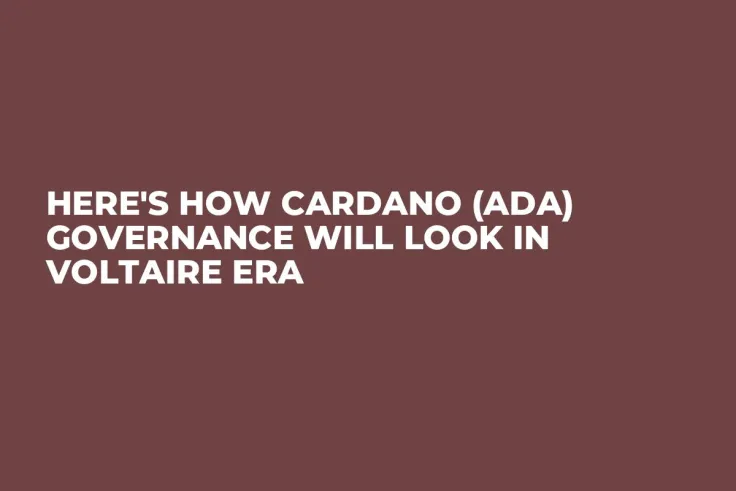Pseudonymous Cardano (ADA) enthusiast and leader of ABLE staking pool @Hornan7 shared his graphic explanation of how referendums will be organized in Voltaire, an era of "endgame" decentralization for the second largest proof-of-stake (PoS) network.
Here's how Cardanians will vote once CIP-1694 is live: Details
Input Output Global (IOG), the development entity behind the progress of Cardano (ADA) blockchain, shared the scheme of protocol governance that will be implemented with the transition toward the Voltaire era. Cardano Improvement Proposal 1694 (CIP-1694) is designed to make blockchain governance more inclusive then ever before.
Introducing the latest on CIP-1694 that outlines an innovative on-chain governance mechanism, for minimum viable governance in the age of Voltaire 🗳️✨
— Input Output (@InputOutputHK) June 30, 2023
Big thanks to @Hornan7 who kick-started this graphic #Voltaire #CardanoCommunity #CIP1694 #Cardano
The scheme that is dubbed "Minimum Viable Governance" demonstrates three categories of voters. Delegate Representatives will have voting power proportinally to the number of ADA staked in favor of them. Constitutional Committee members will all have equal voting power.
Meanwhile, staking pool operators (SPOs) will have voting power proportional to the role of this or that SPO in the Cardano (ADA) staking mechanism. The inaugural version of the new CIP can be submitted by any ADA holder regardless of the size of their portfolio, previous experience and so on.
Then, each group needs to have its votes evaluated by specific threshold rules. Voting thresholds are expressed as ratios that compare the number of "yes" votes to the amount of active voting stake while also taking into account "abstant" voices.
For all action types, each of three groups of voters needs to reach the threshold, the explanation says.
Toward final phase of Cardano (ADA) decentralization: What is Voltaire?
However, all three groups have various "jurisdictions." For instance, only delegate representatives, or DReps, vote on all actions required to update the blockchain. Constitutional Committee members vote on all referendums except motions of no-confidence and new quorums.
SPOs, in turn, vote only on the two mentioned types of referendums as well as on hardfork initiatives. Each CIP will have its own deadline: if the number of "yes" votes does not meet the threshold by the deadline, the referendum is dropped.
As covered by U.Today previously, Cardano's Voltaire is the ultimate phase of its decentralization. In Voltaire, the maximum voting power will be distributed between ADA holders. Some analysts expect this phase to come as soon as next year.



 Dan Burgin
Dan Burgin Vladislav Sopov
Vladislav Sopov